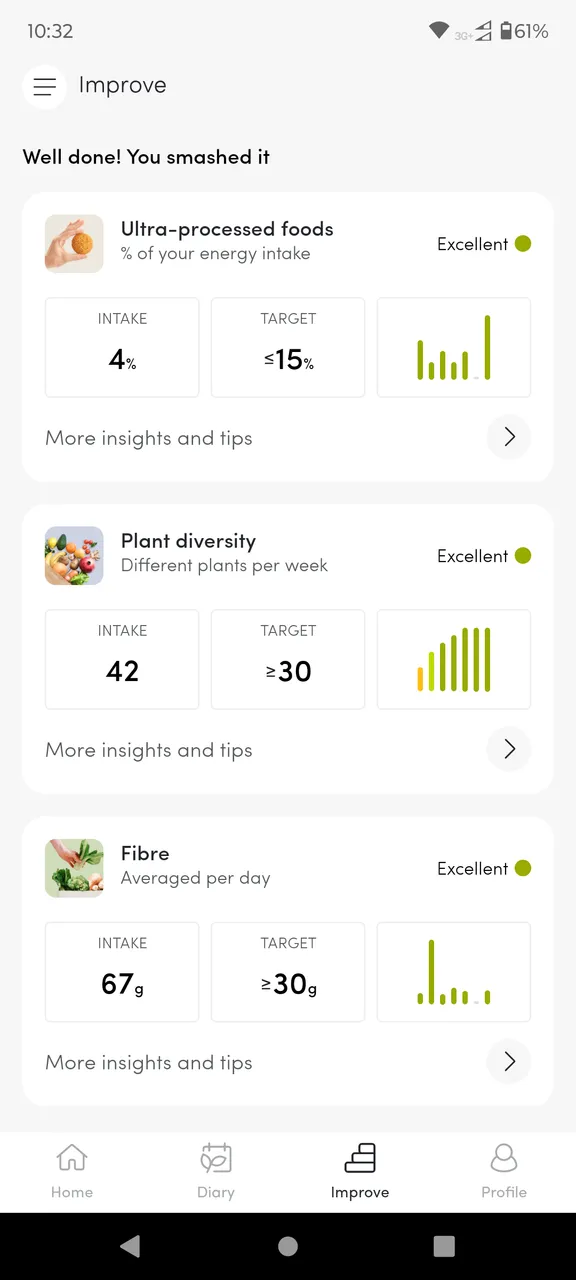Taking Part in the Zoe Tests
About eighteen months ago I wrote about the gut microbiome and how eating in certain ways can improve people's health. A couple of weeks again, I tried a test available through Zoe.
I had three areas of interest:
- aging as well as I can, with the fewest problems.
- a general interest in science and human biology.
- how new health discoveries are going to work for the people who need it most.
The test has various elements including eating specially designed muffins for one day at specific times for breakfast and lunch and after fasting overnight for eight hours; wearing a blood sugar monitor for two weeks and taking blood and stool samples.
It does take time to do the tests, there's a lot to think about, and some things are harder than others. I struggled with the breakfast muffins and just about managed them within twenty minutes (fifteen was requested); getting a blood sample from my finger tips was hard work. But none of it was terrible.

Test Results
My results were interesting:
- blood sugar control - good (62%)
- blood fat control - poor (48%)
- diet - good (58%)
- gut microbiome - excellent (86%)
I was pleased about the excellent gut microbiome result, especially as I have had something like six courses of antibiotics over the past year or so for a chronic infection, the last one about three or four weeks before the tests. I've been eating roughly 30 plus plants a week since reading the original article about gut microbiome research.
One of the main motivators for doing the tests was the current recommendation from my GP to take statins to control cholesterol levels and my reluctance to do that. I wanted to know about what was going on - what my personal biology was - and look at ways I could make lifestyle changes to improve cholesterol levels without taking medication.
I was surprised that my plant based diet was only scoring about 58%.

Changing eating habits
As a result of the test result, Zoe provides a personalised score for something like a million different food stuffs. I've logged what I've been eating over the past ten days and have received the feedback for the past seven days.

I've been reducing eating ultra-processed food for some years now, even before I learned about Zoe and the gut microbiome. The UK population has one of the highest consumption rates in the world for ultra-processed foods with an average of something like 55% of every day foods.
This means that some groups of the population are eating much higher percentages. Some of this is linked to fast food but far more to many people having very little money to spend on food and managing as best they are able.
The biggest dietary changes I am making are more legumes and nuts and less bread and potatoes. I'm glad the app logs how many plants I'm eating during the week, saves me worrying about that.
Improve protein intake
I was astonished at the amount of protein I eat during a week, coming in this week at an average of 134g. The recommended amount for me as an older adult woman (over 50) who eats a mainly vegetarian diet is between 101g-130g. So my score was "good" with a recommendation to aim for slightly lower quantities.
Blood fat control
Ironically, no feedback about the intake of what are known as quality fats - mainly from extra virgin olive oil (definitely not cheap), avocados (not sure about the environmental ramifications of this) and nuts. As this was was my major health concern and motivation, I feel slightly frustrated.
You do get daily feedback if your intake of less healthy fats (for me, that's from eggs, butter, cheese and yoghurt) is too high with recommendations to eat less fat/more healthy fats for the next meal.

Pros and cons
There is a lot to learn undertaking this programme, even when you already have some understanding about healthy eating. There are a lot of resources and lessons to complete, as well as logging everything you're eating and drinking. I feel there's a very high probability of user fatigue, even from highly motivated people, especially if you have a life, go to work and have a family.
There is some problems with the app as well, sometimes there are bugs which can be frustrating.
It's not cheap. The test costs about £269 - considering that a blood control sensor costs about £50, plus all the testing and there is a lot of online support, this is what it costs, but it is probably out of the range of many people, and especially people who would benefit most.
Following the test, there are subscription packages to support making changes. The most common package is a four month subscription costing £135. Again, this probably puts the programme beyond the threshold of the people who most need it.
My health check is due in November which will be 10-12 weeks of following this programme. Let's see whether it has any effect on my cholesterol levels.
You can find out more here and on youtube.



